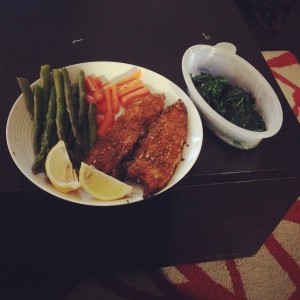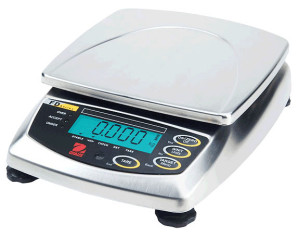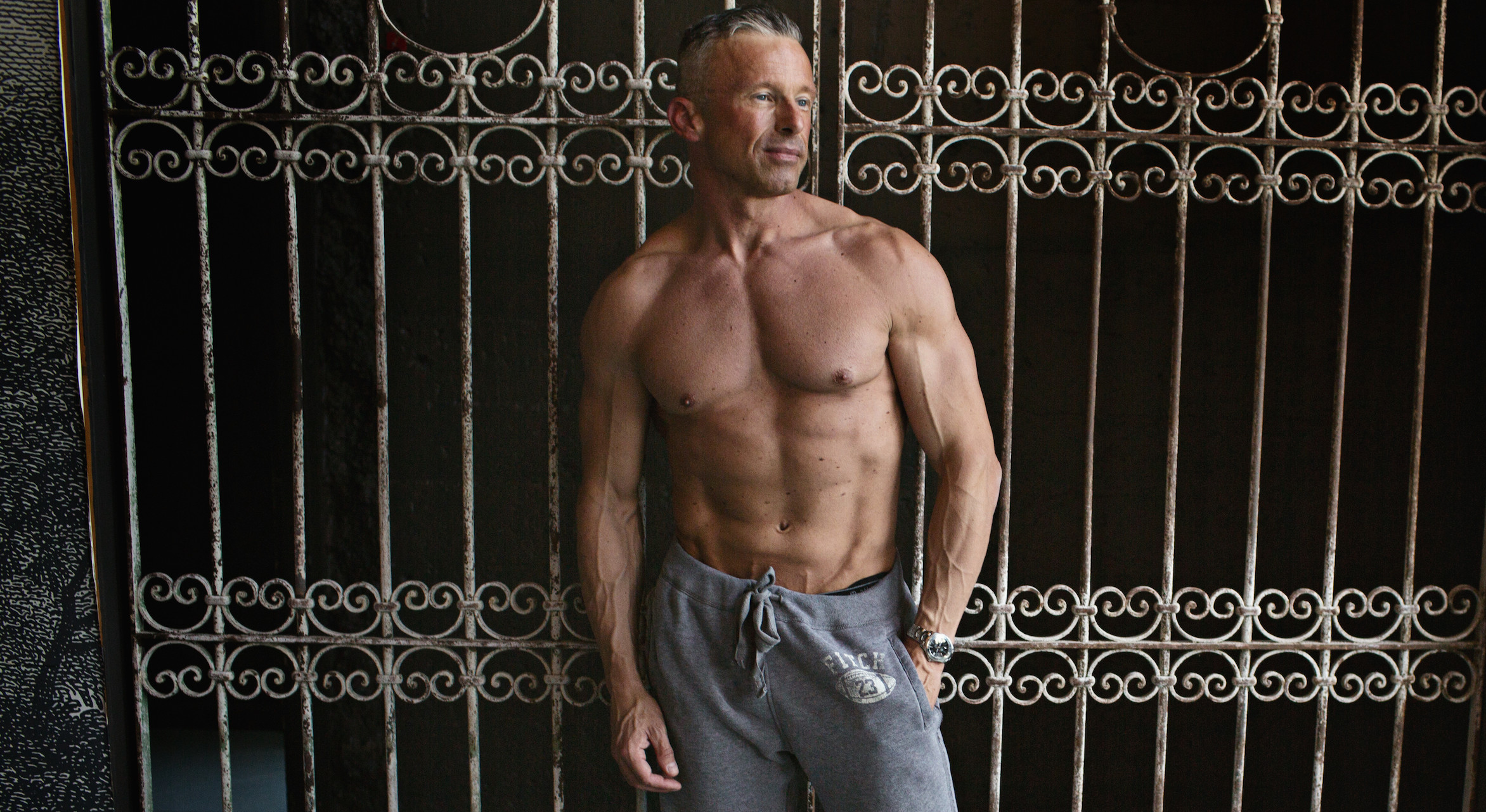With fat loss, the truth is out there.
That’s an understatement. The truth is right in front of you. Always has been.
Yet most people can’t see it. Or at least refuse to see it. And fewer still can stick with it.
Hopefully that’s about to change.
My last post described many of the obvious and not so obvious reasons to get lean.
For those on the fence about dialing in, it was about discovering your why – why you need to suck it up and do the necessary work to get in shape.
It’s the most important step of all. Having a why will stoke your engine through what always becomes some seriously tough sledding.
So now let’s get to the how.
Big Rocks vs Little Rocks
In his classic time management book, The 7 Habits of Highly Effective People, author Steven Covey says when planning your schedule to always “put the big rocks in first.”
The analogy goes, if you’re trying to fit as many rocks as possible into a wide-mouth mason jar, you should start with the big rocks and then add the smaller pebbles last.
Because if you start with the small stuff, after a while you might not have room for the more impactful big stones.
In fat loss, there are 7 Big Rocks that most would agree must be accounted for before worrying about many of the smaller things that often only serve as distractions.
However, these Big Rocks are at best… boring.
A calorie deficit may be the big poppa of fat loss, but it’s also about as sexy as buying underwear at a dollar store.
But carb cycling? Intermittent fasting? That sounds cool! That sounds “technical.”
Work in a bunch of dubious assumptions to ancestral eating and it creates a false sense of control over our metabolism that we simply don’t have. Not to mention builds fanbases and sells books. Where do I sign up?
So now you have armchair experts saying they only eat between 7 and 9 pm (9:30 in Newfoundland) because it increases GH and enhances insulin sensitivity.
Well, it doesn’t. At least not in any significant, impactful way.
What it does allow you to do is control calories better (a Big Rock). It also might work for you, personally, so you can do it consistently (another Big Rock).
Confused yet? Don’t be. Let’s start with the full list of Big Rocks. And it’s a short one.
The 7 Big Rocks of Fat Loss
1. Achieve a consistent calorie deficit. You need to be in a calorie deficit to lose fat. So you first need to figure out your maintenance calories and then create a small deficit, mainly through diet.
To determine your maintenance, you can keep a 3-day diet log and then figure out your daily average, or you use any handy online equation. Arguing the best equation is a fool’s debate – it’s at best a guess, and you’ll likely need to scale it up or down anyway.
Although many, like this official one from the NIH, are just way too high.
I find bodyweight in pounds x 12 as good as anything.
2. Use mainly whole, unprocessed nutritious foods. Build your diet around a variety of foods with considerable nutritive value. As you’ll read later, that doesn’t mean you can’t eat shit from time to time; you just shouldn’t make eating shit your dietary go-to. Think colorful veggies, fruit, and high quality protein.

3. Sufficient Protein and Essential Nutrients. For most healthy individuals, hit the above whole food recommendations and the nutrients tend to sort themselves out.
As for protein, the “1 gram per pound” rule still works. You can get away with less but I prefer more, simply because protein is very satiating.
4. Consistency/adherence. My colleague Bret Contreras recently called adherence the most difficult thing in the world. I agree. Anyone can eat “on task” for a day or two or even a week. But week after week, weekend after weekend? That’s tough.
Making it work means choosing foods you’ll actually buy, prepare, and eat, consistently.
However, it also means allowing for a little indulgence, even going off plan entirely.

My colleague Sohee Lee wrote an awesome post here recommending an upper limit of 20% “junk” calories per day.
As she puts it, “making some room for daily treats allows you to maintain your quality of life.”
In my experience, people given the “freedom” to eat a little bit of what they want every day tend to eat cleaner, as a whole, than most following the “eat clean Monday to Friday” plan.
Perhaps it’s because there’s never any “forbidden fruit?” From a psychological perspective that makes sense.
5. Sufficient Water. Surely you don’t need to read again why drinking water is important? In terms of how much to drink (in ounces), your bodyweight (in pounds) x .5 is a good rough starting point. So a 200 pound guy should drink at least 100 ounces a day.
6. Avoid Losing Weight Too Fast. One to two pounds a week is a good level of weight loss. The more fat you have, the more you can push this.
7. Exercise. For the most part, use diet to burn fat and weight training to keep muscle. For the most part. More on that next post.
And that’s it. Or is it?
The Many Small Rocks
Well that’s not everything of course, just the Big Rocks. It’s what has to be in place before stressing about stuff like whether your tomatoes were grown without pesticides.
But while there are thousands of small rocks, not all are bullshit or even minutiae. More often they’re just not relevant. At least not for fat loss. Or at least not right now.
Because while a Big Rock like energy balance must always be accounted for, a little rock can be “contextually important.”
That’s where I take issue with the new legion of “reductionist fat loss experts” who claim that calories and adherence are all that matters.
Well, for most of the population, sure. But as you get further along in the fat loss process, especially as you approach really lean, some of the smaller rocks become increasingly important.
In fact, a small rock can eventually become as important as a Big Rock.
Here are just 5 important small rocks to at least consider in your fat loss plan.
1. Precise macro breakdowns. What’s better, 40P-30C-30F or 40P-40C-20F? Believe it or not, that’s a hotly contested debate online.
For most people, the answer is “it doesn’t matter.” Pick one and see if you can stick to it for a few weeks. And go lift.
But bros looking to get really lean should be more discerning. Extreme high carb or low fat diets are rarely the answer. However, in general, the more active you are, the more the diet should favor carbs to fat. There are exceptions of course, and plenty of wiggle room to experiment.
2. Calorie/macro cycling. The whole concept of “eating more on workout days and less on off days” doesn’t make sense. The body is still repairing itself on non-workout days, which requires nutrients.
Still, there are benefits to having carbs around the workout “window,” so things like carb cycling (more carbs on workout days) certainly works.
Just remember, bodybuilders got in shape for decades eating the same “macros” every day of the week. But if the system “feels good” and helps with adherence or recovery (perceived or otherwise) then it’s worth at least trying.

3. Exceptional Tracking. The two most important times to track everything like a robot are when you’re first starting out (to become aware of what and how much you’re really eating) and in the end stages of a diet.
Most learn this the hard way, including yours truly.
I was recently in a stubborn fat loss slump, despite doing everything “right” on paper and eating basically the same amounts every day.
At least I thought so. When I actually busted out the scale & notepad again, I was amazed at how much I was sneaking in below my radar, either because I was hungry, tired, or stressed. Your body will fight you, and even try to trick you. A few nuts here, a piece or two of chocolate there. And it adds up.
4. Meal Frequency. Meal frequency matters more when trying to add mass. Yet even when fat loss is the goal, it’s not a good idea to go too long without eating, nor is it wise to weight train late in the day fasted.
The potential negatives (decreased protein synthesis, low energy workouts) far outweigh any dubious internet benefits, like the aforementioned GH red herring.
Still, personal preference (adherence) and hitting daily totals are the Big Rocks for a reason.

5. Supplements. You do not need supplements to build muscle, lose fat, or feel fantastic. Yet there are beneficial ones as I covered here and here, some can be helpful when striving to go from “good to great.”
For the most part, supplements that help hit the Big Rocks are your first choice, including quality protein powders or meal replacements. Supplementing with nutrients lacking in even healthy diets like creatine monohydrate, essential fats, and multi-vitamins/minerals is wise too.
But someone getting lean should also pay attention to supplements that encourage recovery — specifically sleep, which tends to go to shit at the end stages of a diet.
Things like magnesium, melatonin, and herbal sleep remedies can be beneficial.
Those are your all important Big Rocks of Fat Loss, followed by a few small pebbles that actually have noticeable effects. At least once you reach a certain level.
The key take-way, however, is establishing a hierarchy of needs. And never losing sight of it.
Then executing, consistently. Which I can help you with you know. Seriously, this is my shit yo.
Next up? Training to get lean.
No Bullshit
Some guys just want to look good. Others are willing to learn what it takes. Which guy are you? Click here to learn more about building the body you want.

